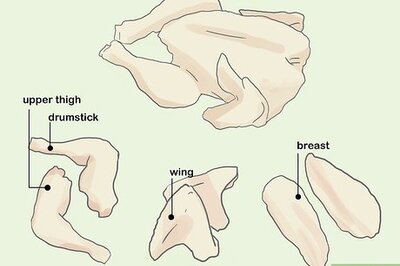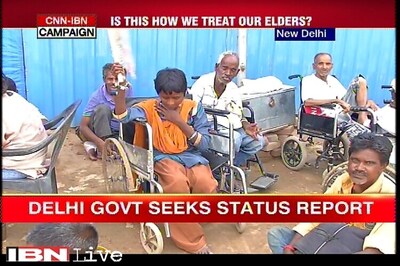
views
Ahmedabad: Mittal Patel, 38, is clear about her mission in life — improving the condition of nomadic and de-notified tribes in Gujarat.
The founder and managing trustee of Vicharata Vimukta Samuday Samarthan Manch (VSSM), Patel is at present flooded with letters from various villages of Banaskantha district in North Gujarat to help them conserve water.
The 38-year-old has been instrumental in bringing changes in the lives of the deprived communities; it was due to her tireless advocacy of their rights since 2005 that they were recognised as Indian citizens and received access to various welfare schemes of the government.
The VSSM, which came into existence in 2006, has been a platform for the communities and organisations supporting them. Its mission is to give them social identity, citizen’s rights, education, health facilities and livelihood options.
Patel says that while visiting families in villages of Banaskantha district, a semi-arid area that borders Pakistan, she came face-to-face with the grim reality of depleting groundwater and disappearing lakes. She also observed people’s indifference towards water conservation.
However, in 2015, she decided that she had had enough. Since then, Patel has never looked back and her water conservation work has become a template for many villages in the region to emulate.
In the last two years, her organisation successfully deepened 87 village lakes in 45 villages of Banaskantha with people’s participation.
“Though I was working with the communities living in villages of Banaskantha, I could see how the region was neglecting its traditional water conservation practices and how it was depleting the ground water table. In many villages, farmers deepened the borewell to 1,100 feet to fetch water. I then started meeting locals for water conservation. Initially, nobody was interested as they were still getting ground water but we continued our efforts to sensitise them and began our lake deepening work from Asodar village in Tharad taluka,” Patel told News18.
In last four years, Banaskanatha district witnessed a severe climate change. According to the Gujarat State Disaster Management Authority (GSDMA) data, the area witnessed a drought in 2018 as it had received just 33.40 per cent rainfall as against its average annual rainfall. In 2017, Banaskantha received extremely heavy rainfall — 189.40 per cent — as against its average annual rainfall. Again, in 2016, Banaskantha received only 80.39 per cent average rainfall.
In 2015, Banaskantha had experienced heavy floods as it received 162.92 per cent rainfall as against its average annual rainfall.
“Farmers in most parts of Banaskantha district are dependent on rain and ground water. I told villagers how climate change would impact their lives in coming years and can’t be taken lightly. The same district faced extreme flood in 2015, scarcity in 2016, again floods in 2017 and drought in 2018. Villagers realised the severity of climate change and we began to deepen village lakes on a large scale. In the last two years, we deepened 87 lakes in 45 villages,” she said.
The 38-year-old also asked villagers to extend a helping hand to the nomadic and de-notified tribes in return for her help and they readily agreed.
“Nomadic and de-notified tribes face discrimination in most villages and due to lack of identity documents, they were unable to get benefit of government schemes. In villages where we deepened lakes, they helped communities in various ways and paved way for integration of these historically deprived communities with the mainstream,” she said.
Her NGO provided earth-moving machine with fuel for water conservation and villagers had to bear other expenses such as taking away soil in their tractors.
“In most villages, people contributed financially so that we could further deepen their village lakes,” Patel said.
A resident of Adhgam village in Kankrej taluka of Banaskantha district, Valabhai, said: “After our lake was revived with the help of Patel, over 100 farmers get irrigation water from this lake and we can survive even rain deficiency. We could see the results of water conservation.”
Patel, meanwhile, says she revived the tradition for a better future. “When I started meeting elders in these villages, they told me that they would deepen lakes in their youth. It was a tradition but in the last three decades, it was stopped. They also told me that every villager was supposed to take part in lake deepening work as it was the only source of water for all. So, I just revived the tradition for collective better future,” she said.
The Union Cabinet chaired by Prime Minister Narendra Modi had in February this year set up Development and Welfare Board for Denotified, Nomadic and Semi-Nomadic Communities (DNCs). Patel has been appointed a member of this board.




















Comments
0 comment